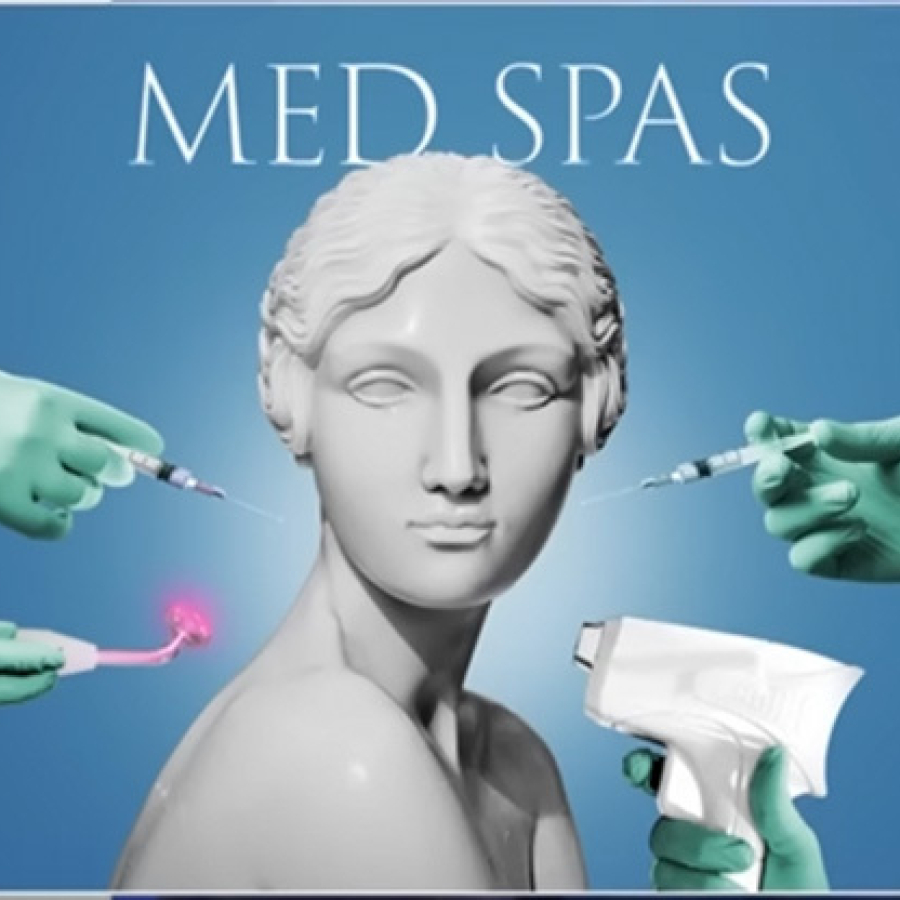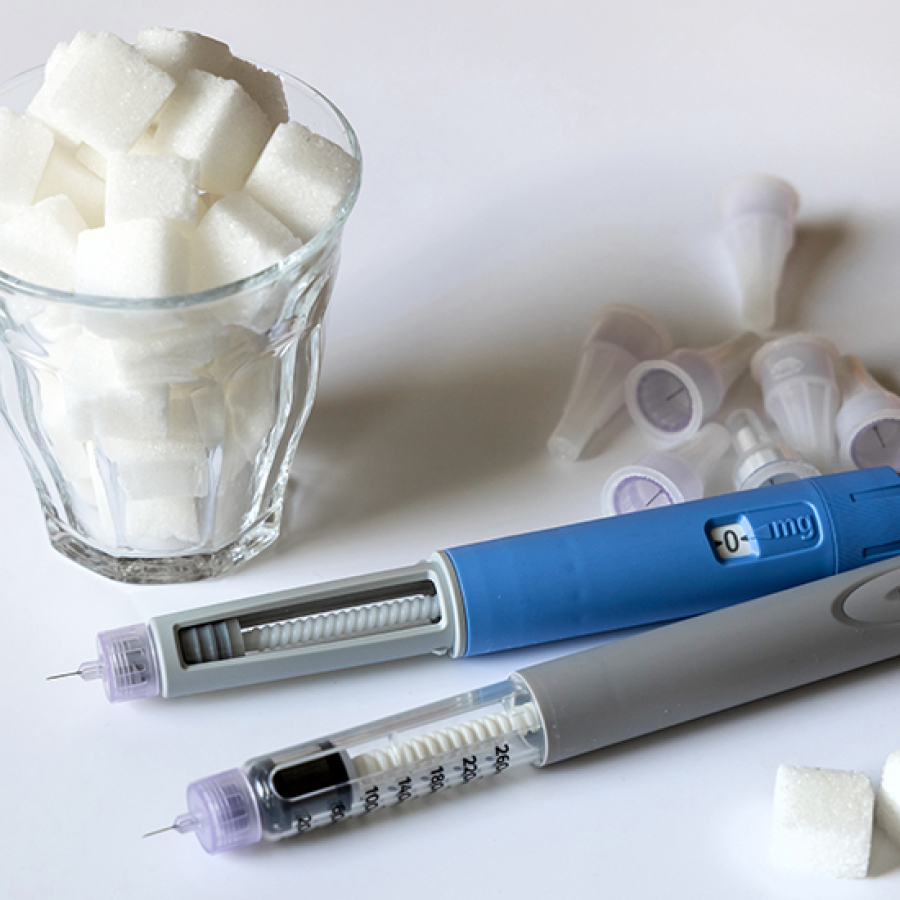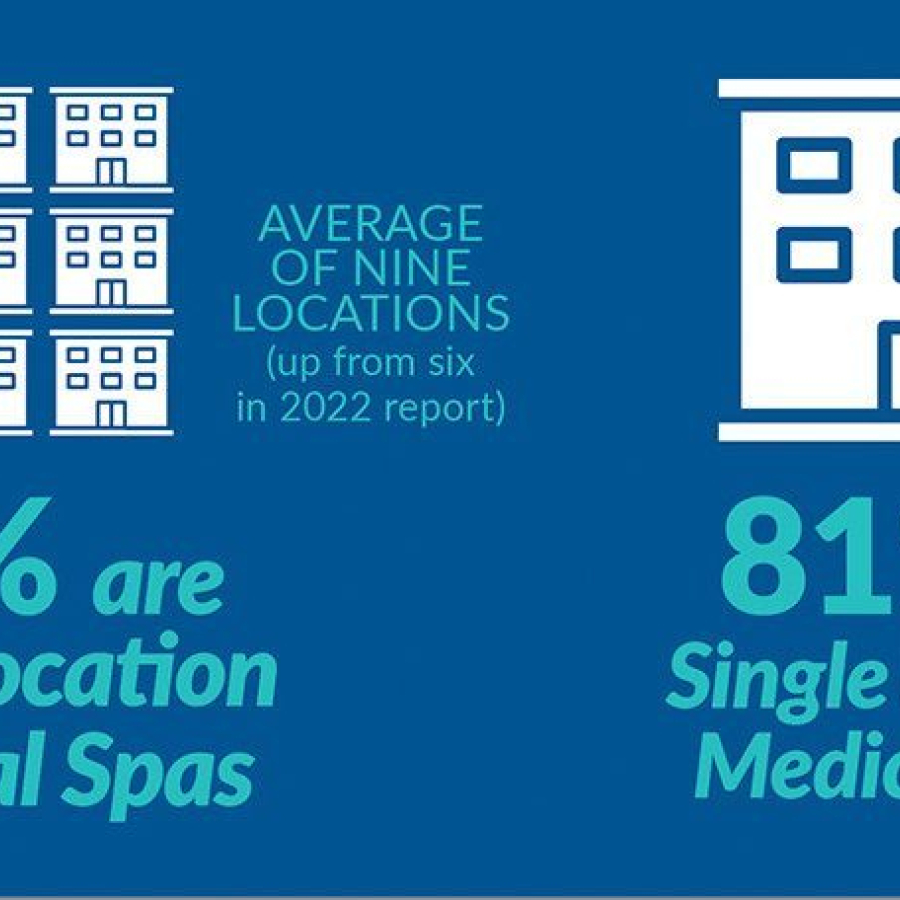
Legal
HB 3749, Greg Abbott, and... John Oliver?
HBO's Last Week Tonight with John Oliver discussed public concerns about how med spas operate.By Alex Thiersch, CEO, AmSpaJohn Oliver ...
Posted By Madilyn Moeller, Thursday, June 17, 2021

By Madilyn Moeller, Editorial Assistant, American Med Spa Association
PAs are key members of the medical aesthetic industry. At many medical spas, PAs help to facilitate the safe, compliant administration and supervision of medical treatments, thanks to their status as advanced practitioners. However, a number of PAs have felt for some time that the title "physician assistant" does not accurately reflect their education or skills, and through their primary advocacy group, they have made their desire for a change known.
The American Association of Physician Assistants (AAPA), the national professional society for PAs, representing more than 150,000 professionals, recently approved a title change from "physician assistant" to "physician associate." This change has not been supported by the American Medical Association (AMA), American Osteopathic Association (AOA), American Academy of Dermatology Association (AAD), American Psychiatric Association (APA) or American College of Radiology (ACR). Discussion on the topic has revolved around patient confusion, transparency and truth in advertising, with the national medical organizations stressing the importance of physician-led teams and the AAPA suggesting that the new title more accurately describes the role of the practitioner.
In order to become a PA, a person must go through a master's degree program with eight six-week clinical rotations, a national certifying examination, state licensing requirements and 100 hours of continuing education every two years.
In 2018, the AAPA enlisted WPP plc, a health care marketing and branding company, to lead a title change investigation for the PA profession. The goal was to "position PAs to successfully compete in the ever-changing healthcare marketplace," according to the AAPA website. They reviewed more than 150 title options, using specific criteria to narrow the field of candidates down to four.
On May 24, 2021, the AAPA House of Delegates affirmed "physician associate" as the official title of the PA profession by a majority vote. Note, however, that until legislative and regulatory changes are made, PAs will still be known as physician assistants.
In the weeks following the announcement, national medical associations responded to the AAPA's announcement. Among the industry statements are common themes: concern for patient confusion, truth in advertising and transparency, and an emphasis on the physician-led health care team.
The AMA issued a statement from the organization's president, Susan R. Bailey, MD, that said:
AAPA's recent move to change the title 'physician assistant' to 'physician associate' will only serve to further confuse patients about who is providing their care, especially since AAPA sought a different title change in recent years, preferring to only use the term 'PA'. Given the existing difficulty many patients experience in identifying who is or is not a physician, it is important to provide patients with more transparency and clarity in who is providing their care, not more confusion. Yet, AAPA's effort to change the title of physician assistants to rebrand their profession will undoubtedly confuse patients and is clearly an attempt to advance their pursuit toward independent practice. We believe this latest effort is incompatible with state laws and are prepared to work with interested state and specialty medical societies to address any efforts to implement this title change in state or federal policy.
We remain strongly committed to supporting physician-led health care teams that use the unique knowledge and valuable contributions of all health care professionals to enhance patient outcomes. It is also what patients want, which is why clarity in health care titles is so important. That is why the AMA has advocated in support of truth in advertising laws and stands in strong opposition to AAPA's title change.
AOA President Thomas L. Ely, DO, and CEO Kevin M. Klauer, DO, EJD, called for collaboration over these decisions.
The American Osteopathic Association calls for truth in advertising, intellectual honesty and transparency with the use of professional designations of non-physician clinicians in service of the public interest. We also call for organized, collaborative discussions among stakeholder organizations in the Physician, Advanced Practice Registered Nurse and Physician Assistant communities to find common ground on these important topics.
Similarly, the AAD expressed strong opposition, with concern for patient confusion. AADA President Kenneth J. Tomecki, MD, FAAD, stated:
The American Academy of Dermatology Association (AAD) values the role of physician assistants as members of a physician-led team providing quality patient care. But the AADA and its members strongly oppose the title change proposed by the American Academy of PAs from physician assistant to physician associate. The change will exacerbate patient confusion about who is providing care and his/her role in the health care system. The name change will not reflect the difference in education and training as compared to the training of a board-certified dermatologist.
Physician assistants are important components of patient care, collaborating appropriately with dermatologists throughout the U.S. The AADA believes that optimum care is delivered under the leadership of a board-certified dermatologist who provides direct, on-site supervision to all non-dermatologist personnel. Everyone who delivers medical care has an obligation to inform patients and the public of individual qualifications and competencies prior to treatment. Scope of practice in dermatology is critical to ensure patient safety.
The APA released the following statement in response to the title change:
Patients deserve a clear understanding of the roles played by all those who partner in their care, as they already experience difficulty in identifying who is or is not a physician. It is important to provide transparency and clarity, not create more confusion, and put their safety at risk.
The AAPA's decision to rebrand their profession by changing the title of physician assistant (PA) to physician associate does not accurately convey PA responsibilities under the critical guidance of a physician-led team. In the name of medical care transparency, the American Psychiatric Association (APA) strongly opposes this name change as it will exacerbate the challenges patients already face when discerning the qualifications of those who are both providing and leading their care.
The ACR also voiced its opposition to the change:
The American College of Radiology (ACR) opposes the change in title from physician assistant (PA) to physician associate. The physician assistant title accurately reflects the training of these professionals and their role in any physician-led team. Any change would lead to confusion among patients as they make important health care choices.
Radiologists are uniquely trained and qualified – even among physicians - to provide radiologic care. The ACR actively opposes supervision or interpretation of radiological exams or procedures by non-physician providers. The ACR endorses the role and training of the Registered Radiology Assistant (RRA) – which does not include imaging supervision or interpretation.
The ACR will work with other physician specialties on legislation and regulations to ensure that patients receive the highest quality care from physician-led healthcare teams.
The AAPA responded to the national medical organizations with a June 4 letter from President and Board of Directors Chair Beth R. Smolko, DMSc, MMS, PA-C, DFAAPA; Vice President and Speaker of the House William T. Reynolds Jr., MPAS, PA-C, DFAAPA; and CEO Lisa M. Gables, CPA:
We are writing to inform you that AAPA's House of Delegates recently passed a policy affirming physician associate as the official title for the PA profession. We believe that this title more distinctly articulates the role and responsibilities of PAs in continuing to deliver quality healthcare, while reaffirming our commitment to team-based patient care. We kept "physician" in our title to demonstrate the value we place on our longstanding relationship with our physician colleagues and our historic roots within the physician community. As you know, the PA profession was created in response to the primary care physician shortage of the mid-1960s. It was Dr. Eugene A. Stead of the Duke University Medical Center who established the first PA program and recruited the first class of PAs from the Navy Hospital Corpsmen who had received considerable training during their military service.
We respect our relationship with your organization and the healthcare team members you represent, and we believe that our common interest—to best serve the needs of patients—unites us and presents collaborative opportunities to strengthen the fabric of America's healthcare system. There has never been a greater need for access to quality healthcare for all Americans, and it is up to us—together—to heed the call to service.
While our title has changed, our mission has not—to transform health through patient-centered, team-based medical practice. We look forward to our continued work together.
AmSpa reached out to members of its Aesthetic Safety Council, which consists of medical aesthetic industry professionals from different practice levels, including physicians, Advanced Practice Registered Nurses (APRNs)/Nurse Practitioners (NPs), Physician Assistants (PAs), Registered Nurses (RNs), and owners, for comment on this controversy.
George Baxter-Holder, ARNP, DNP, CANS, applauded the effort. "They are not physicians, but they are associated with a physician, as they do the job being done solely without help or input from the physician for each individual function. Many physicians would not have the robust practice they have without the work of their associates. It is a sign and title of respect and opposing it is exactly the opposite of this."
Grace McLaurin, PA-C, who has 23 years of experience as a physician assistant, said the change has been a long time coming. "People often think we are MOAs or CNAs. I don't understand the uproar from AMA and other organizations opposing it. I don't believe 'associate' is any cause for alarm or confusion in the marketplace. It also more appropriately describes what we do."
Hermine Warren, DNP, APRN, CANS, CNM, who has been in nursing since 1974, offered her congratulations. "As most of us know, branding is everything, and can often inaccurately influence the lay public's conception of who you are. I see this change of title for PAs as essential to allowing this group to evolve in their authentic path."
The AAPA board of directors will plan the next steps for implementing the title change. This will require commitment from the profession and its entities, with a potential five-year implementation timeline. Before official changes are made, more research will look into the resource allocations, financial obligations, and legislative and regulatory efforts needed to go through with the change. The cost of changing the profession title is estimated to be $21.6 million.
The AAPA does not have the authority to force a title change on an individual or organization, so each state chapter of the AAPA and all constituent organizations will make a determination about pursuing the title change. We will be monitoring these changes for final adoption.
Related Tags
Medical spa news, blogs and updates sent directly to your inbox.

Legal
HBO's Last Week Tonight with John Oliver discussed public concerns about how med spas operate.By Alex Thiersch, CEO, AmSpaJohn Oliver ...

Trends
By Patrick O'Brien, JD, general counsel, and Kirstie Jackson, director of education, American Med Spa AssociationWhat is happening with glucagon-like ...

Trends
By Michael Meyer Approximately every two years, the American Med Spa Association (AmSpa) releases its Medical Spa State of ...

Trends
By Michael Meyer Since the beginning of 2024, it seems like medical aesthetics has taken one hit after another ...